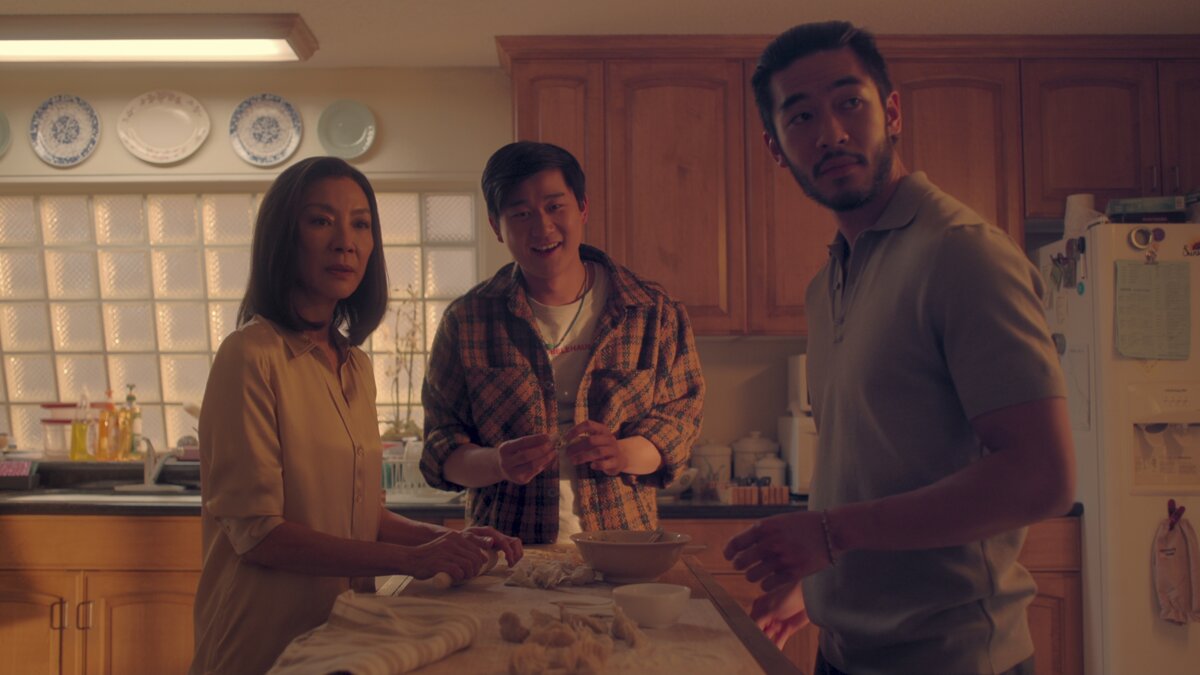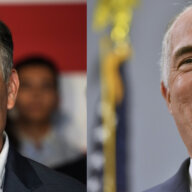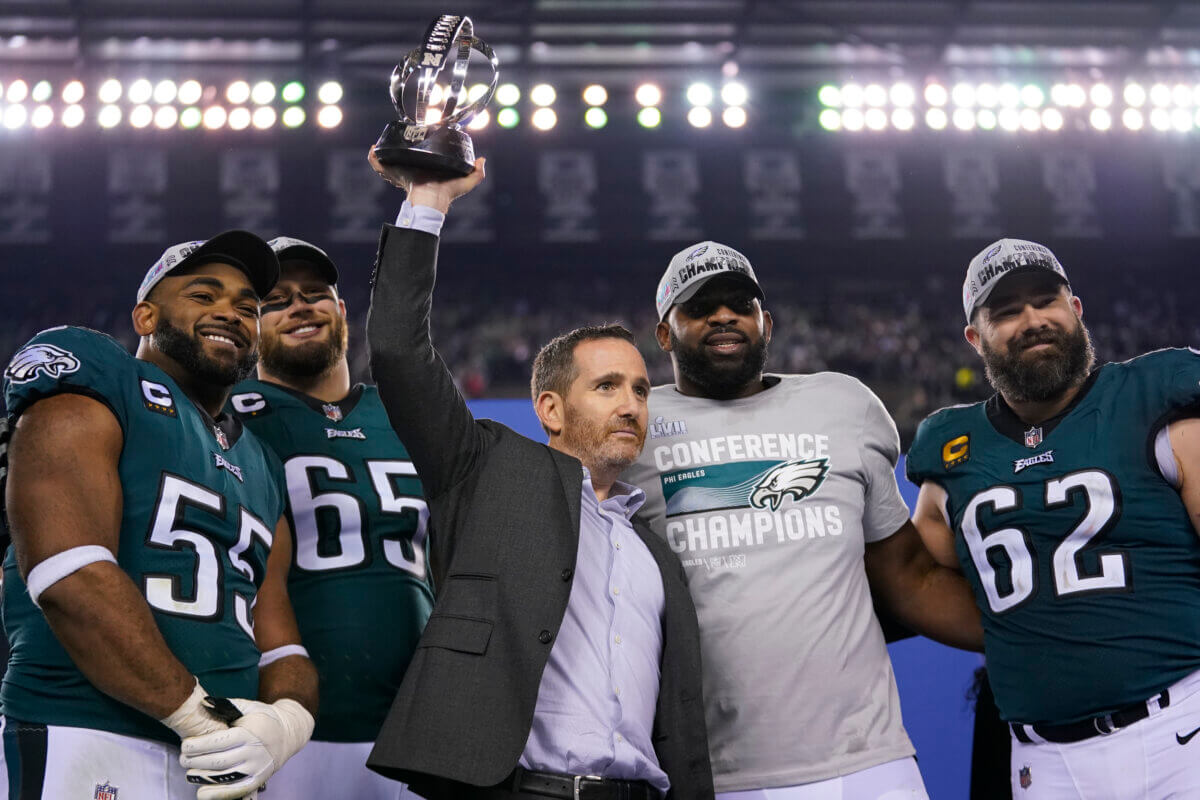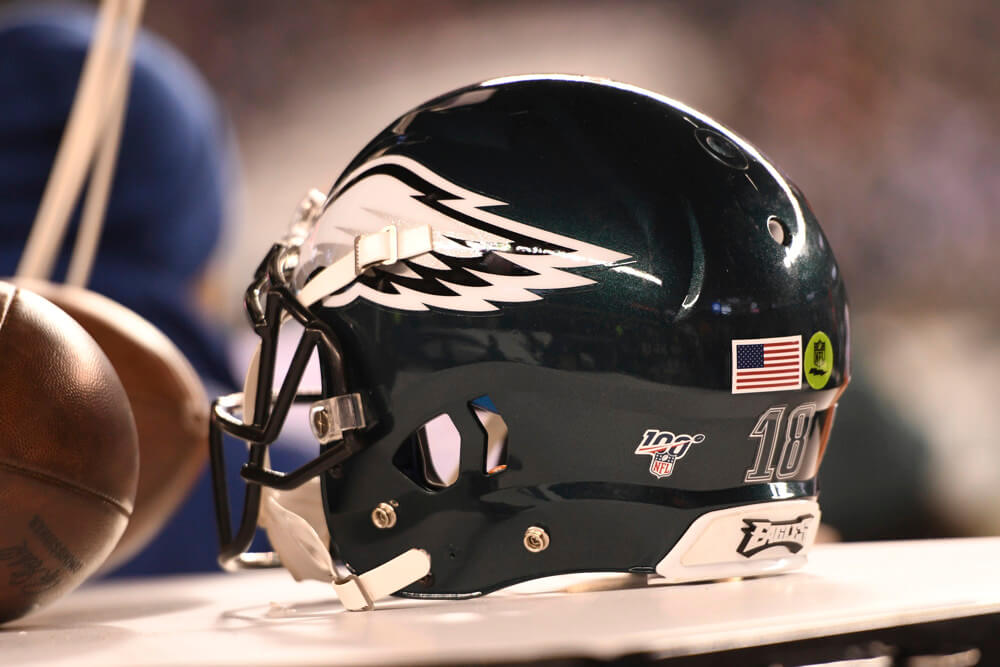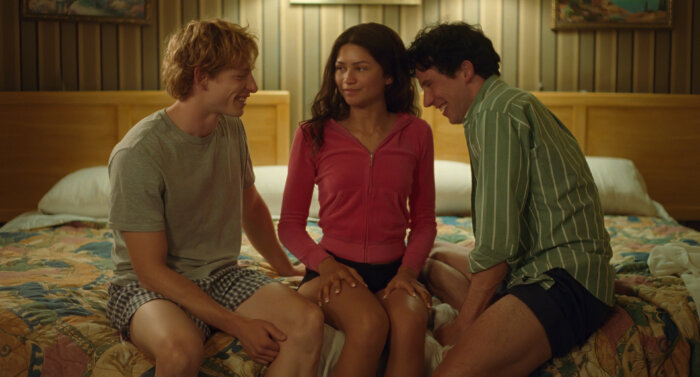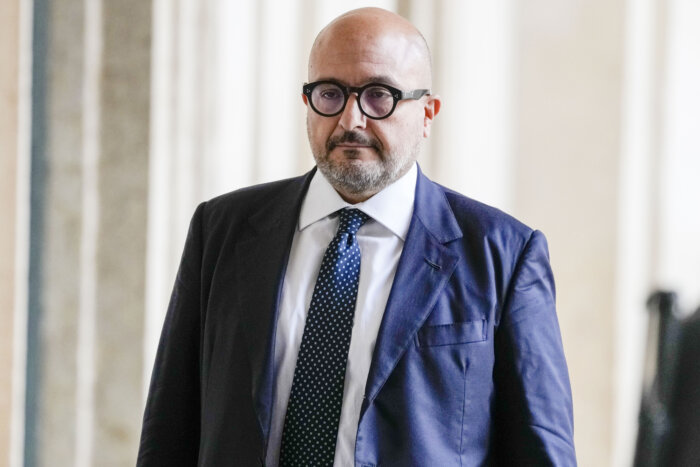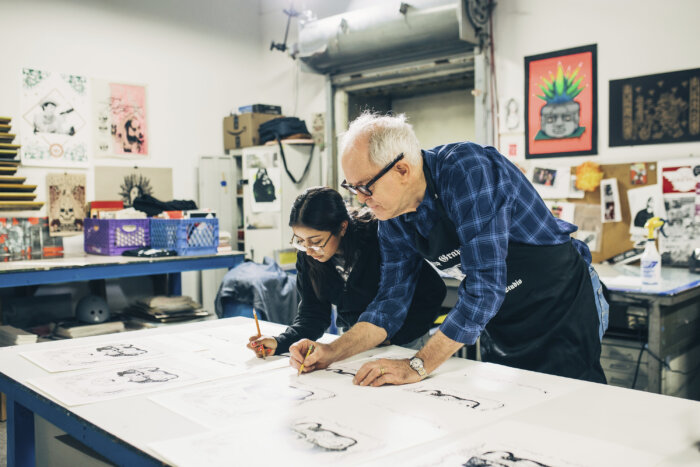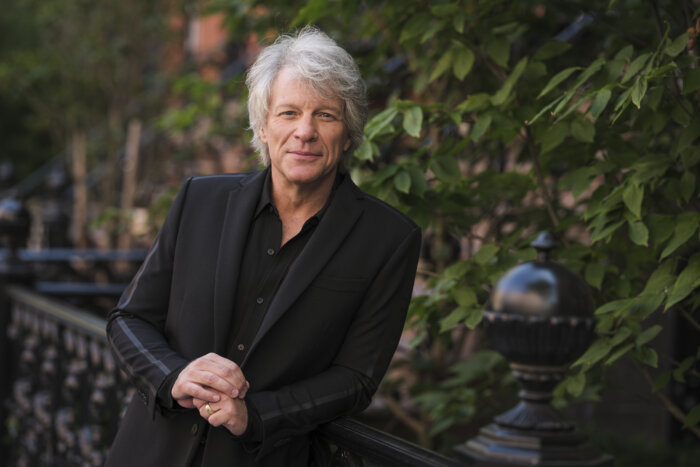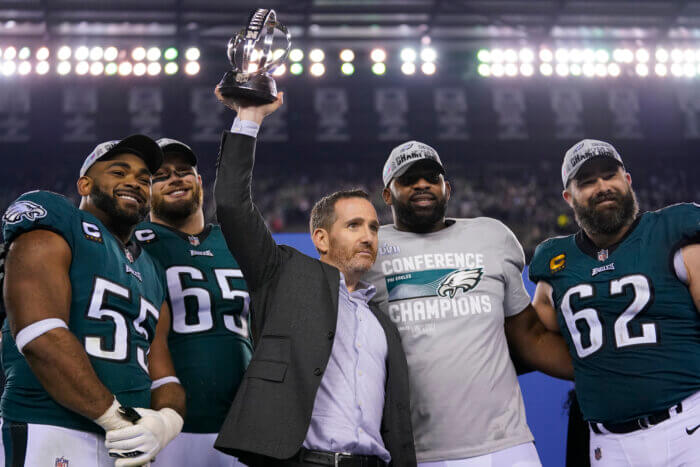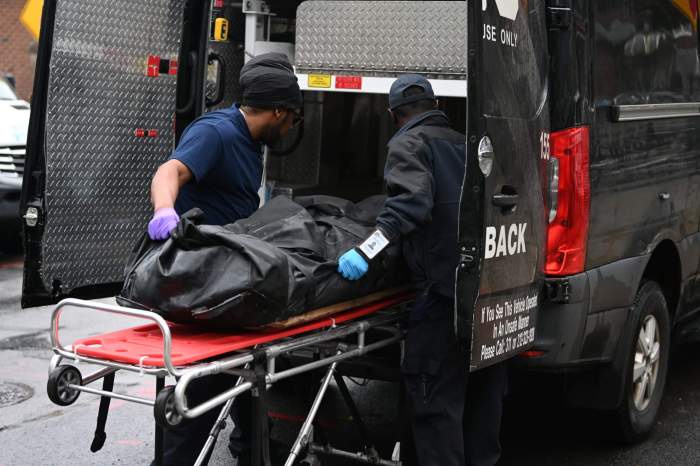By TERRY TANG Associated Press
In 2021, Sam Song Li was cast in an independent film as the ancestor of a character played by a pre-“Shang-Chi” Simu Liu. To the general public, the non-speaking cameo might seem insignificant. But for Li, it was a seminal moment.
A producer told him she picked him after looking at more than 200 people for the role, for which he was “on screen for like a whole 30 seconds,” Li recalled to The Associated Press.
“I remember hearing that and just feeling like, ‘You know what? I think I’m good enough for this,'” he said.
Almost three years later, Li is one of the leads in an all-Asian cast and, like Liu, acting opposite Oscar winner Michelle Yeoh. He and Justin Chien play the scions of a Taiwanese triad leader in the new Netflix series “The Brothers Sun.”
An elixir of crime drama and comedy, “The Brothers Sun” shakes up the formulaic way Hollywood has often portrayed Asian immigrant families. The genre-bending show aims to be a vehicle for fresh faces like Li and comedian Jenny Yang, a practice that doesn’t always feel like the norm when it comes to actors of Asian descent.
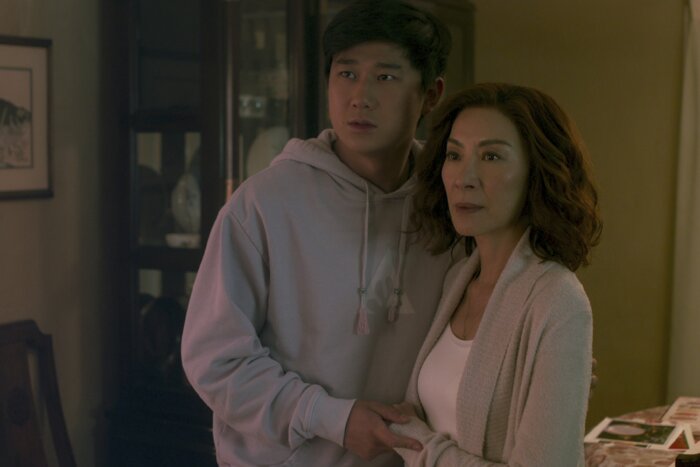
Mostly known for stand-up and sketch comedy, Yang is making her television acting debut as the assassin Xing.
“I had heard about the project before any casting notice was seen and I was jealous. … Why am I not involved in this?” Yang recalls.
She credits casting director Jenny Jue with making “the extra effort to scour the internet and scour her networks to look for talent that might not have been previously seen.”
Jue, whose previous projects include “Inglorious Basterds,” also grew up in Southern California with a high school boyfriend who “dabbled” in a Taiwanese gang. She pointed to that history when she lobbied writer-executive producer Brad Falchuk (“American Horror Story,” “Pose,” “Glee,”) and executive producer Byron Wu to board the project. But she also made a heartfelt pitch about how she saw it as a huge responsibility to the Asian American community.
“I really want to see new faces here. You’ve written roles that are too distinctive and layered and nuanced. I don’t just want to shoehorn the same faces that we always see into these roles,” says Jue, describing her pitch. “Even the final cast, I wasn’t sure if any of them had their SAG cards other than Michelle Yeoh.”
Yeoh was the only big name Jue felt they had to have. Producers agreed after she got them into an early screening of “Everything Everywhere All at Once.”
“I knew of some really talented actors who were considered for Mama Sun. But Michelle just has a really innate, motherly quality. And she can also be really tough,” Jue says. “That’s what we really needed for this role.”
Li likens working with Yeoh to “playing basketball with Steph Curry.” And when the cameras weren’t rolling, “she is somebody who walks into a room with so much grace, so much love for everybody and she really listens to to people in a very intimate way.”
There have been a few naysayers on social media, including Asian Americans, who bemoaned Yeoh’s continued casting in parts that could have been stepping stones for other actors. It’s reminiscent of criticism Liu — who played a Ken in “Barbie” — has faced for appearing to get the lion’s share of “Asian male” roles.
The double-edged sword of being cheered for breaking barriers and then dinged for seemingly taking too many opportunities more often plagues actors of color. Yang understands some of these complaints come from a good place of wanting to elevate more people. But, one person’s success doesn’t have to be divisive, she says.
“Of course everyone wants to work with Michelle Yeoh. Of course everyone wants to see what she can do next. So, I think we can have both,” Yang says. “I think we can have the ability to uplift as many talented voices as possible. Let’s keep pushing on that. But, let’s celebrate when someone gets a spotlight on their talents.”
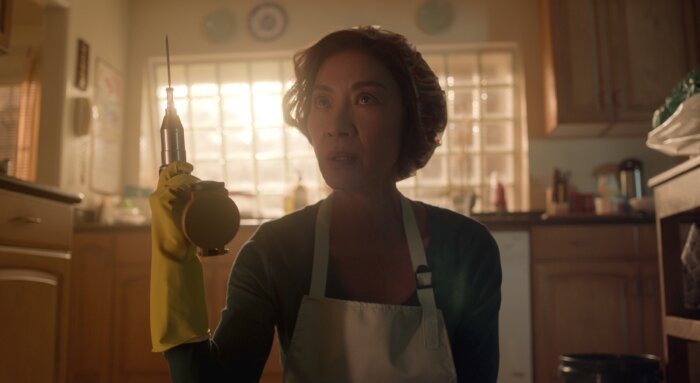
Li, whose only previous TV credits were one-episode guest spots on “Never Have I Ever,” “Better Call Saul” and “Home Economics,” has had his share of rejections. But, he chooses not to take it personally.
“I think a win in our community of any kind is a huge win for all of us,” Li says. “There’s never been an instance for me where I went, ‘Wow, I could have done it better.'”
A 20-year veteran in casting, Jue agrees it can feel like one sees a lot of the same faces from a marginalized group. It’s “a product of a lot of decision-makers and higher-level executives not knowing that there’s anything else out there.”
She recalls trying to have dialogues with producers and directors about diversifying ensembles numerous times in the late 2000s. She would often hear “no” without explanation. It was as if having no conversation at all was easier, Jue says. But there was a seismic shift in 2020, with the racial reckoning after the murder of George Floyd.
“The conversations I’m having now with producers are much more open,” Jue says. “It’s a real safe space where I tell them ‘I’m never gonna use anything we talk about against anybody in these rooms. We just really need to talk openly about what you guys like, what you don’t like, what you want to see and how we can add more diversity in a way that feels really natural.'”
For so long, too, Asian immigrant family narratives on screen tended to be depressing, overdone tales of struggles with racism, money or some other outside force.
“The Brothers Sun” is the latest among recent productions, all featuring Yeoh, that paint parent-child conflict in an Asian American household with humor and action. “Everything Everywhere All at Once” and the Disney+ show, “American Born Chinese” have been applauded for fun and inventive narratives. This isn’t a trend but an indicator that audiences are moving on from “well-trodden tropes” about Asian immigrant stories, Yang says.
“I feel like it’s a part of a greater desire to see just fun entertaining family shows or about family dynamics but with heightened situations,” Yang says. “This is what television is for, baby.”



